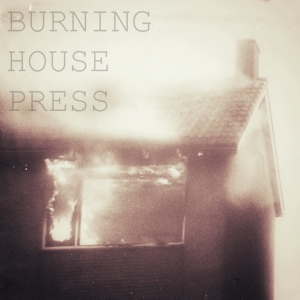Barbara Loden is Wanda, as they say in the movies. Her inspiration for the screenplay was a newspaper story she had read about a woman convicted of robbing a bank; her accomplice was dead and she appeared in court alone. Sentenced to twenty years in prison, she thanked the judge. Interviewed when the film came out, after it had been awarded the International Critics Award at the 1970 Venice Film Festival, Barbara would say how deeply affected she had been by the story of this woman—what pain, what hopelessness could make a person desire to be put away? How could imprisonment be relief?
–Nathalie Léger, Suite for Barbara Loden
From an early age, I knew I wouldn’t make it in this world. So I connected with women who, in my mind, shared that feeling. Plath and Woolf with their suicides speaking of a deep pain. Barbara Loden and her film Wanda in which the title character wanders alone and unloved.
Wanda is poor and she is voiceless and she is invisible. I understand the not-thereness of her.
Nathalie Léger felt a connection to Wanda as well. Tasked with writing an encyclopedia entry about actress Barbara Loden, she quickly became obsessed and expanded her inquiry, writing Suite For Barbara Loden, a gorgeous and dizzying investigation and excavation. Léger delves into Loden’s life, at times embellishing and inventing, and analyzes every layer of Loden’s only film, Wanda. The book is fact and fiction and memoir and film criticism; it is a love letter to Loden and the singular film she created.
I still remember when I first watched Wanda. It was a year ago. Autumn 2015. I watched it in my house–my childhood home–that is no longer mine. A place I was deeply connected to that was taken away. No real home anymore. I’m as lost as Wanda. I always was. When I saw her, I instantly recognized myself.
Of Wanda, Léger writes “She has no money, or almost none, she is on her own, she has nothing and is good for nothing.”
She’s a woman drowning, a woman swallowed by landscape and time and the world’s indifference to her and her own indifference to herself.
Wanda leaves her husband and kids and ends up meeting a criminal and helping him rob a bank. She’s supposed to be the getaway driver, but, on the way to the bank to retrieve the man, she becomes lost. The man dies in a shootout with police. The story is based on a true story. Loden took another woman’s story and mixed it with her own. Wanda is a hybrid of its source material and of Loden herself. It’s infused with her own feelings, experiences, and subjectivity.
Loden created one film and died. She was robbed of the time to create more. But at least she did one great thing.
I remember, also, Elia Kazan taking credit for Wanda, trying to silence and dismiss Loden as an artist in her own right. He must have been intimidated, must have recognized the film’s greatness. Otherwise, why try to claim it as his own?
I return to the character of Wanda. I know her well, this cinematic reflection of my insides. I’m like Wanda—not good at anything, going from job to job, not good enough, not really here, not really alive. Drifting, sleepwalking, waiting—for what? For it all to end.
I don’t care about film theory. I don’t care about academia or psychoanalysis or writing smart, profound things about movies. I care about the experience of the film, the relationship between myself and the story. I feel films. I intuit them. I can’t really write about them. Besides, Wanda is beyond language. She is flesh and blood to me.
Léger writes about Wanda well and her writing testifies to how a film lives even after it ends. Or maybe it never ends. Léger’s project is a seance. At its core, cinema is a raising of the dead, a mixing of the living with the dead. Cinema inspires obsession. These images get inside our heads and we can’t erase them. Léger won’t let go of Wanda or Loden.
A woman makes a movie about another woman. A woman watches that movie and writes a book about the woman director and the woman subject of the film. A woman–myself–reads that book and feels transformed by all these women who gave voice to the things she struggles to write.
You either understand Wanda or you don’t. You either see yourself in her or she repulses you. The helplessness, the oddness, the obliviousness. How could she leave her kids? How could she stay with a man and help him commit a crime? How could she let herself be demeaned?
Wanda never had freedom. Maybe that’s why prison is a relief. Life holds nothing for her.
Is Léger’s book a form of literary stalking? Léger follows Loden through the decades but is never able to pin her down. Loden remains a mystery, an unknowable woman.
Just as I can’t write about films, I also can’t write about books. What a lousy writer I am. I feel so many things and decided that words were the only way I could express some of them, but I fail at it. I fail at everything, like Wanda, who failed as a wife and a mother and a worker and a woman and a criminal. She failed spectacularly. She failed so much that failing was her only talent. I guess it’s my talent, too.
I want people to read Suite for Barbara Loden and feel what I felt, but you need a life of pain and failure to understand Wanda. You need to have blank eyes and a not-thereness and I don’t wish that on anyone. You need to be a little bit wounded and broken and unable to heal. Wanda does not triumph. Wanda is crawling on her knees in the dirt. She is what we pretend not to see. The woman we don’t want to become. But I’ve already become her.
I’m so passive. Wanda is passive. At age sixteen, when I took a driver’s education class and we were at the point where we drove in the car, I kept saying “sorry” for everything, for every mistake I made. Annoyed, the teacher blurted out to me one day, “Stop saying sorry.” I’m still terrified of driving. Maybe I’m scared of freedom, of independence, of being an active participant in life.
Things happen to me. Things happen to Wanda. She doesn’t do much to change it, she isn’t capable, she keeps taking it. I keep taking it.
After the teacher demanded that I stop saying sorry, I said “sorry.”
I always feel like I have to apologize for my existence, like there’s no reason for my life or for me being here.
For ten years, I haven’t wanted to be here. My father died, and I stopped wanting to be alive. Maybe Wanda lost someone. Maybe something traumatic and unspeakable happened to her. She carries untold damage. She’s a reminder that so many of us can’t cope, so many of us can’t make it in this world.
Léger writes something similar about Wanda: “We will never know the source of the wound that condemns Wanda to this loneliness. We will never know what ancient betrayal or long distant neglect plunged her into this state of constant and absolute distress. We will never know what loss, what absence she cannot get over. We accept her the way we accept ourselves, in blind ignorance, unable to put a name to the grief of existing. Her face, Wanda’s face, inscrutable, sad, obstinate.”
Some of us will leave this world without a trace. Some of us are so small and slight and transparent that our exit won’t register, our absence will have no presence. We were never here. We were never here.
Caitlin is Nonfiction Editor for Burning House Press. She’s passionate about arthouse cinema, intersectional feminism, social justice, and literature. She blogs about grief and loss at her website, Ekphora. You can follow her on twitter at @ekphora.


1 Pingback